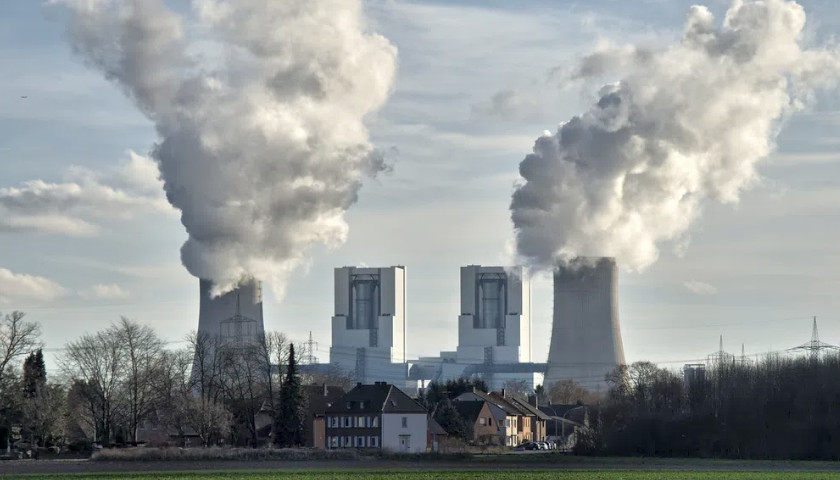by Christen Smith
Commonwealth Court struck down Pennsylvania’s entry into an emissions regulatory program Wednesday, agreeing with critics that it’s an unconstitutional tax.
The decision delivers a blow to supporters of the Regional Greenhouse Gas Initiative – a multi-state program that charges power generators for the pollution they produce – who had hoped Pennsylvania might join the rest of the Mid-Atlantic and Northeast in the agreement.
Except, critics say, those states entered into RGGI via legislative approval. In 2019, then-Gov. Tom Wolf declared Pennsylvania’s membership via regulation, sidestepping the Republican-majority Legislature and the Constitution itself.
“The real winners today are Pennsylvanians who will not suffer from even higher electricity bills, fewer jobs, and less investment in our communities as a result of the RGGI carbon tax scheme,” said Sen. Scott Martin, R-Strasburg. “Today’s ruling affirms what we have said all along: RGGI is a tax on energy that can only be enacted by the General Assembly, not unilaterally imposed based on the whims of the executive branch.”
The goal of RGGI is to lower greenhouse gas emissions, reduce climate impacts, and incentivize a transition to renewable energy.
On the East Coast, a pool of generators from 11 states buy “credits” that cap how many tons of carbon dioxide they can release into the atmosphere. Producers that exceed their cap can buy credits from others in the pool, but the total amount available will decline each year until zeroing out in 2040.
That auction is called RGGI, and since 2009, its credits have collectively reduced greenhouse gas emissions 50% faster than the rest of the country and returned $6 billion back to its member states.
In Gov. Josh Shapiro’s first budget proposal, he counted on more than $600 million in revenue from the program to support investments in public assistance programs, tax credits, career incentives, and public education.
Now, an appeal to the state Supreme Court rests on his administration’s shoulders. On the campaign trail 2022, Shapiro said publicly and behind the scenes that he didn’t support the program and was worried about its impact on the state’s energy industry.
Many agree that Pennsylvania’s participation would be nothing short of a seismic shift. As the nation’s second-largest natural gas producer and leading energy exporter, embracing regulations meant to accelerate the transition away from fossil fuels alarms an unlikely coalition – natural gas developers, legislative Republicans, and labor unions – about the economic impact of carbon “taxing.”
But it’s also a prime target for reducing Pennsylvania’s carbon footprint and tackling climate change. The Department of Environmental Protection says modeling shows joining RGGI will slash carbon dioxide emissions as much as 225 million tons by 2030.
In a recent report from the Kleinman Center for Energy Policy at the University of Pennsylvania, researchers concluded that RGGI participation will reduce the state’s electricity sector emissions by 84% in 2030, compared to roughly 52% without.
This can be achieved without raising utility bills or decimating energy exports, according to the report. Researchers said wind and solar generation will soften the impact of lost natural gas production and retail electricity prices will actually decline 0.6% by the time the RGGI cap zeroes out in 2040.
For critics, however, the modeling defies logic. Air pollution doesn’t respect geographical borders, they say, so non-participating neighbors like Ohio and West Virginia will still release carbon dioxide into the air, unfettered and unregulated – not to mention the atmospheric contributions from the rest of the world.
Natural gas plants, they add, are largely responsible for lowered emissions across the region, so taxing them and other legacy generators into extinction will raise consumer prices and destabilize the power grid.
– – –
Christen Smith is Pennsylvania editor for The Center Square newswire service and co-host of Pennsylvania in Focus, a weekly podcast on America’s Talking Network. Find her work in The Pittsburgh Post-Gazette, Broad + Liberty, RealClear, the Washington Examiner and elsewhere.








